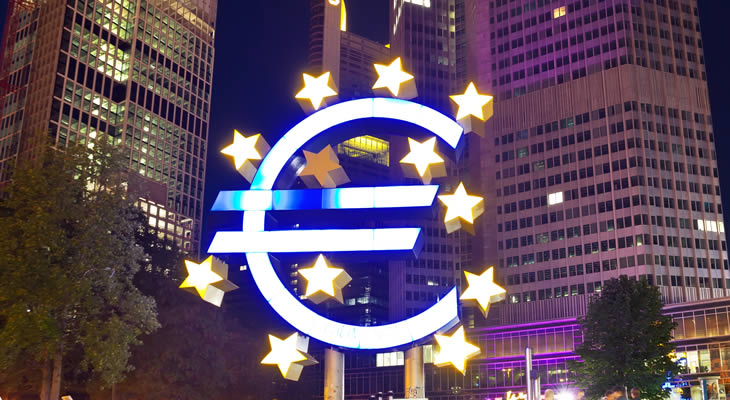GBP/EUR Exchange Rate Falls as UK Economy Could Face Recession until Spring
The Pound to Euro (GBP/EUR) exchange rate fell by -0.2% this morning. The pairing is currently trading around €1.08 after UK Prime Minister Boris Johnson gave a stark warning to abide by Covid-19 restrictions or risk a second lockdown.
Mr Johnson’s comment that the new Covid-19 rules could be in place for as long as six-months has sparked concerns of a recession that will last until spring 2021.
Bank of America’s chief economist, Robert Wood, commented on Britain’s situation:
‘We struggle to see how the economy can grow in the fourth quarter with escalating lockdown measures, fading stimulus and Brexit risks.’
As a result, Sterling investors have become more pessimistic about Britain’s economy, which will struggle throughout the course of the new coronavirus restrictions and measures.
In UK economic news, today will see the release of the flash UK Services PMI. Any improvement in the nation’s largest and most lucrative sector could boost Sterling.
Today will also see the release of the flash UK Manufacturing PMI for September. If this confirms consensus and dips from 55.2 to 54.3, then GBP could suffer.
However, the UK’s coronavirus situation will continue to influence the Pound today. Any dovish predictions for the Covid-19 infection rate – or the economy – would prove GBP-negative.
Euro (EUR) Edges Higher as Germany’s Flash Manufacturing PMI Beats Forecasts Despite Covid-19 Gloom
The Euro (EUR) edged higher this morning after Germany’s flash Manufacturing PMI for September beat forecasts and rose from 52.2 to 56.6. As a result, this has buoyed optimism in the Eurozone’s largest economy’s recovery.
Phil Smith, the Associate Director at IHS Markit, commented:
‘Rising numbers of coronavirus cases have coincided with a drop in confidence among service providers, while manufacturers appear to be shaking off any worries about the potential for further restrictions domestically or abroad, with confidence among goods producers improving to the highest for more than two-and-half years.’
Meanwhile, September’s preliminary Eurozone PMI Composite fell below forecasts, sinking from 51.9 to 50.1.
Chris Williamson, the Chief Business Economist at IHS Markit, was downbeat in his analysis, saying: ‘Eurozone’s economic recovery stalled in September, as rising COVID-19 infections led to a renewed downturn of service sector activity across the region.’
Today also saw French business activity suffer its first decline since May. Activity in the Eurozone’s second-largest economy fell to a four-month low as coronavirus disruption hit its economy.
Eliot Kerr, an economist at IHS Markit, said:
‘The rise in case numbers has been accompanied by fresh restrictions, but has also caused hesitancy among businesses due to fears of a second round of temporary business closures.’
GBP/EUR Outlook: Could a Gloomy Outlook for the Eurozone Economy Weigh on the Single Currency Tomorrow?
Pound (GBP) investors will be awaiting tomorrow’s speech from Andrew Bailey, the Governor of the Bank of England (BoE).
If he reiterates that the Bank will not take rates into negative territory, we could see Sterling rise.
Tomorrow will also see the release of the latest GfK Consumer Confidence report. However, with the figure expected to remain in the doldrums, this could drag on GBP.
Euro (EUR) traders will be paying close attention to the release of German’s IFO Business Climate report for September. If the outlook dims, then the single currency could suffer.
Tomorrow will also see the EU Leaders Special Summit.
Again, any dovishness about the Eurozone’s economy and the coronavirus situation would boost the GBP/EUR exchange rate.


Comments are closed.